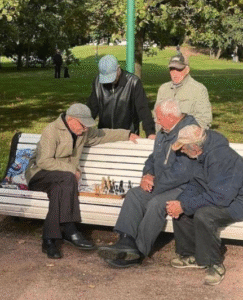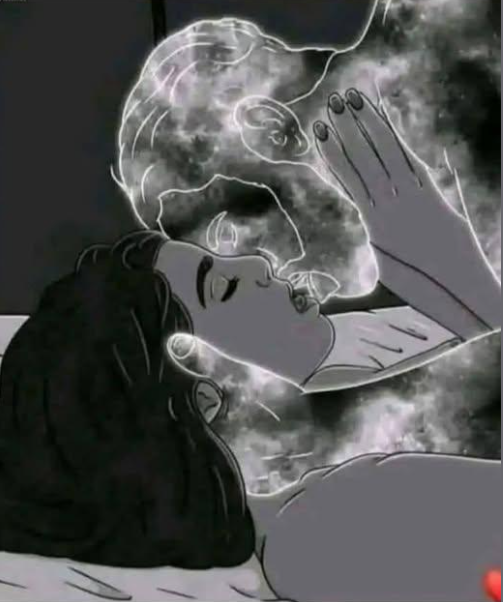I Caught Grandpa Playing Chess in the Park—And It Broke Me in the Best Way
It was an ordinary afternoon, one of those lazy, golden-hour moments when the world seems to move a bit slower. I had taken a walk through the neighborhood park to clear my mind, phone in hand, earbuds in, not expecting anything remarkable. But then I saw him—my grandpa—sitting at a worn concrete chess table beneath the oak trees, a quiet intensity in his eyes and a smile barely playing on his lips.
He hadn’t seen me yet. He was locked in a game with a stranger, a young man probably in his early twenties. Their board was mid-match, pieces scattered in a balanced war. Grandpa leaned in, his hand hovering over his knight, calculating. I paused from a distance, unsure whether to interrupt.
I’d never seen this side of him before. At family dinners, he was always warm, cracking corny jokes, asking if we’d eaten enough. He was the kind of grandparent who sent birthday cards with $10 bills and always called to sing off-key. But this? This was different. Here, he looked alive in a way that shook me. Strategic. Sharp. Playful, even. Like the world had melted away, and it was just him and the board.
I sat on a nearby bench, watching from behind my sunglasses, not wanting to disturb him. Every so often, he’d chuckle quietly, say something I couldn’t hear, and the young man would nod, smiling. They weren’t just playing—they were connecting. Two people from different generations, brought together by 64 squares and plastic pieces.
The game lasted about twenty minutes. Grandpa won. Not by a landslide, but it was clear he had the edge. He extended his hand, the young man shook it, and they exchanged a few more words. The young man stood up, nodded respectfully, and walked away with a grin on his face. Grandpa stayed behind for a while, rearranging the pieces for the next game, waiting.
Eventually, I walked over. He looked up, surprised but happy to see me. “Hey there,” he said, as casually as if we’d just bumped into each other at the grocery store. I asked if he came here often, and he nodded.
“Most days,” he said. “Been doing it for years.”
Years? How had I never known?
He explained that after Grandma passed, he needed something to keep his mind sharp and his days full. Chess became that thing. At first, it was just a way to pass the time. But then he started meeting people—students, tourists, retired folks, kids. He said you can learn a lot about someone in how they play a game. Whether they’re patient. Whether they take risks. Whether they laugh when they lose.
I sat down across from him, and we played. He let me take his queen early—too easily—and I realized he was teaching me more than just chess. He was teaching me about life, about pacing myself, about thinking ahead. About not giving up even when the board looks bad.
I lost, of course. But I didn’t care. I hadn’t felt this close to him in years.
As the sun dipped lower and the shadows stretched across the park, we talked more than we had in a long time. About Grandma. About how he still dreams of her sometimes. About how he never learned to use a smartphone but has mastered every chess trap in the book. About how, despite getting older, he still feels like a young man every time he sits at that board.
That moment shattered something in me—a kind of invisible wall I hadn’t even realized I’d built. The assumption that older people live in the past. That they’re done learning, done connecting. That they don’t still crave purpose. I saw him in a new light that day—not just as my grandpa, but as a man with stories, with fire in his belly, with a quiet kind of brilliance I had underestimated.
We’ve played many games since then. Sometimes in silence, sometimes filled with conversation. I’ve come to understand that those moments aren’t just about winning or losing. They’re about being present. About listening. About legacy. About understanding that wisdom doesn’t always come in loud declarations—but sometimes, in a silent move across a checkered board.
Catching him playing chess that day broke me open in the best way. It reminded me of the richness of human connection, the beauty of small routines, and the power of quiet resilience. It showed me that love can be expressed in a game, that memories can be made in silence, and that sometimes, the most ordinary moment can change everything.
And now, every time I pass that park, I look for him at the chess table. Because I know that somewhere beneath the trees, in the rustle of the leaves and the clicking of chess pieces, there’s a story unfolding—one I never want to stop hearing.


